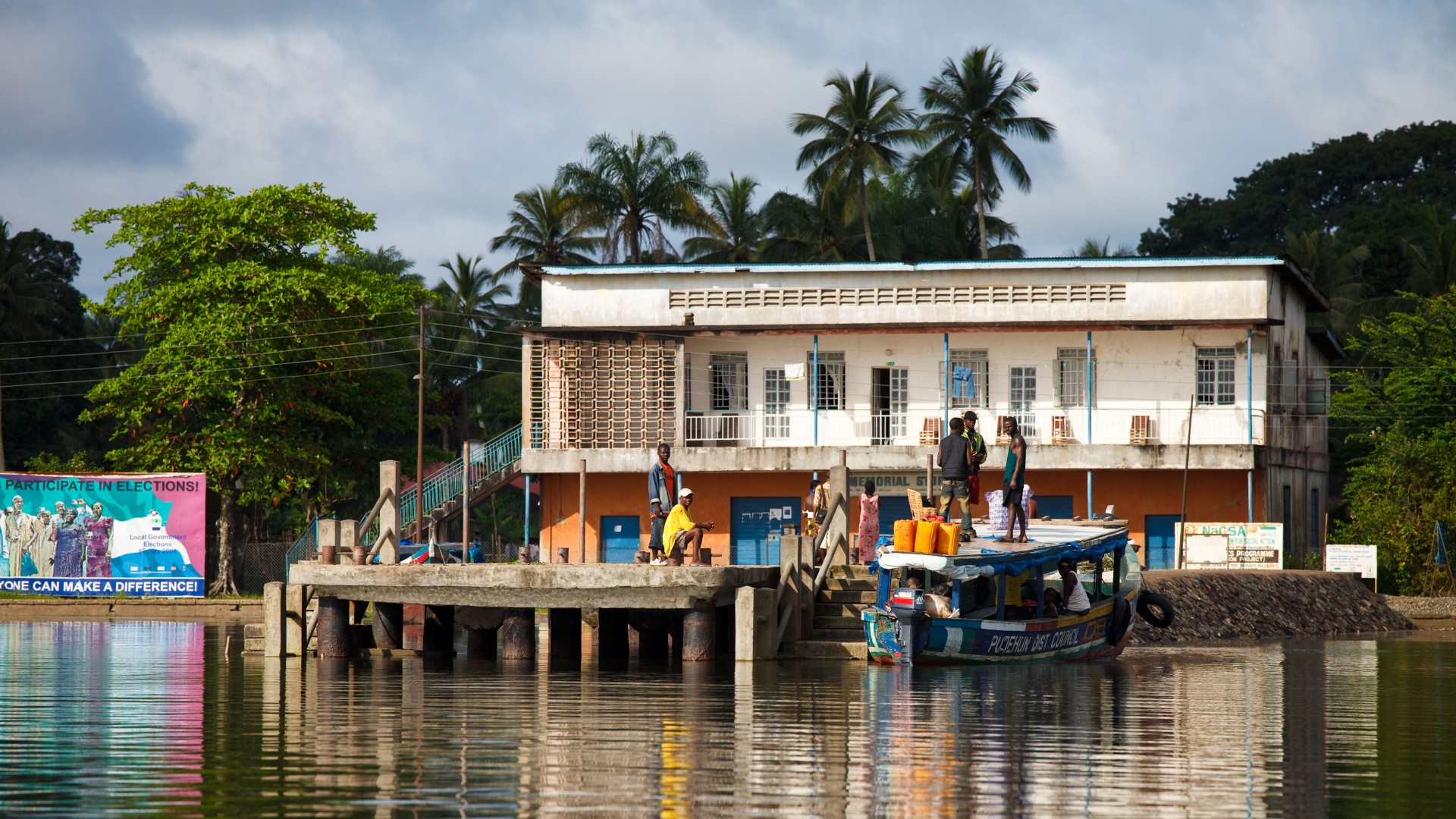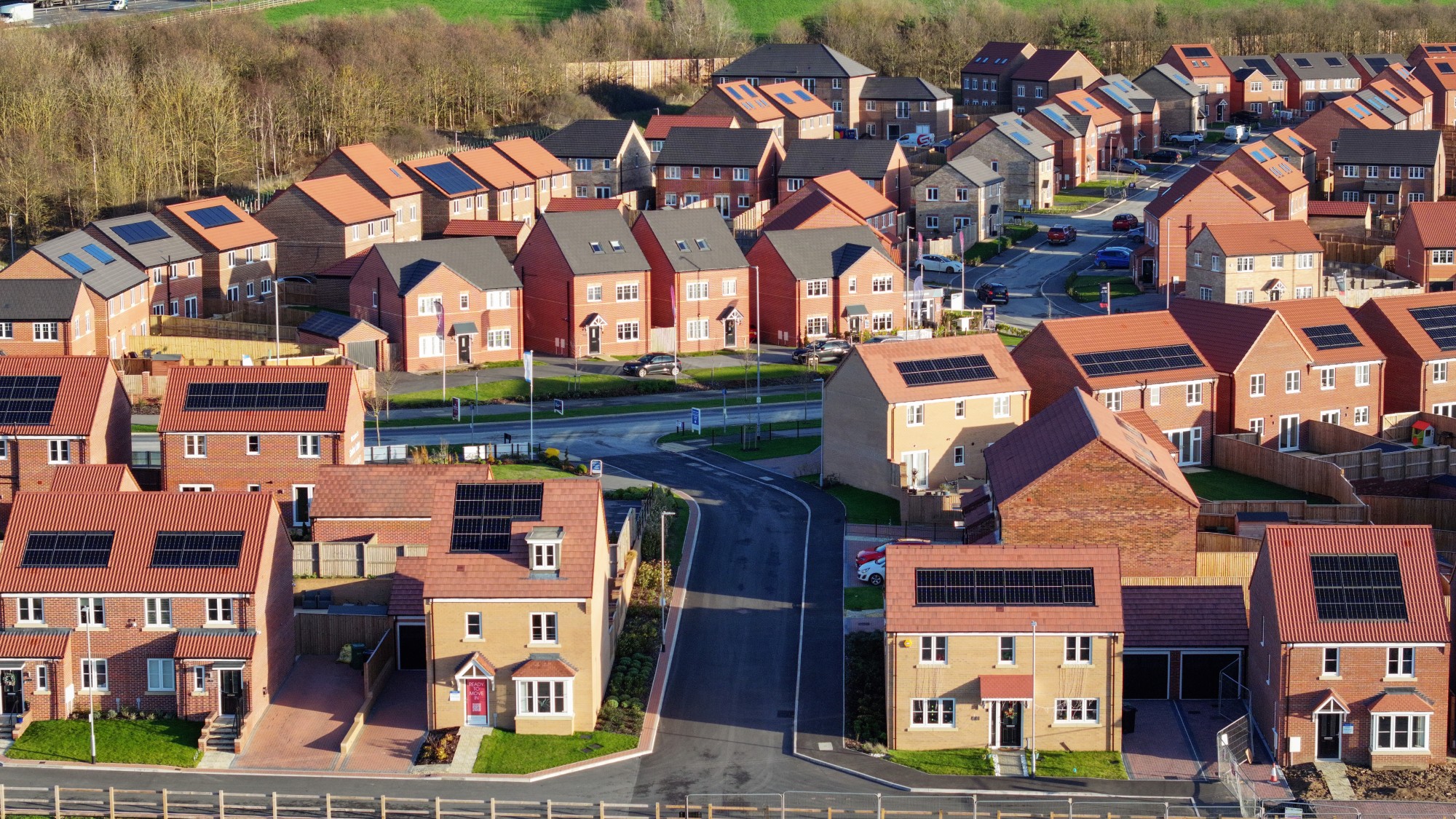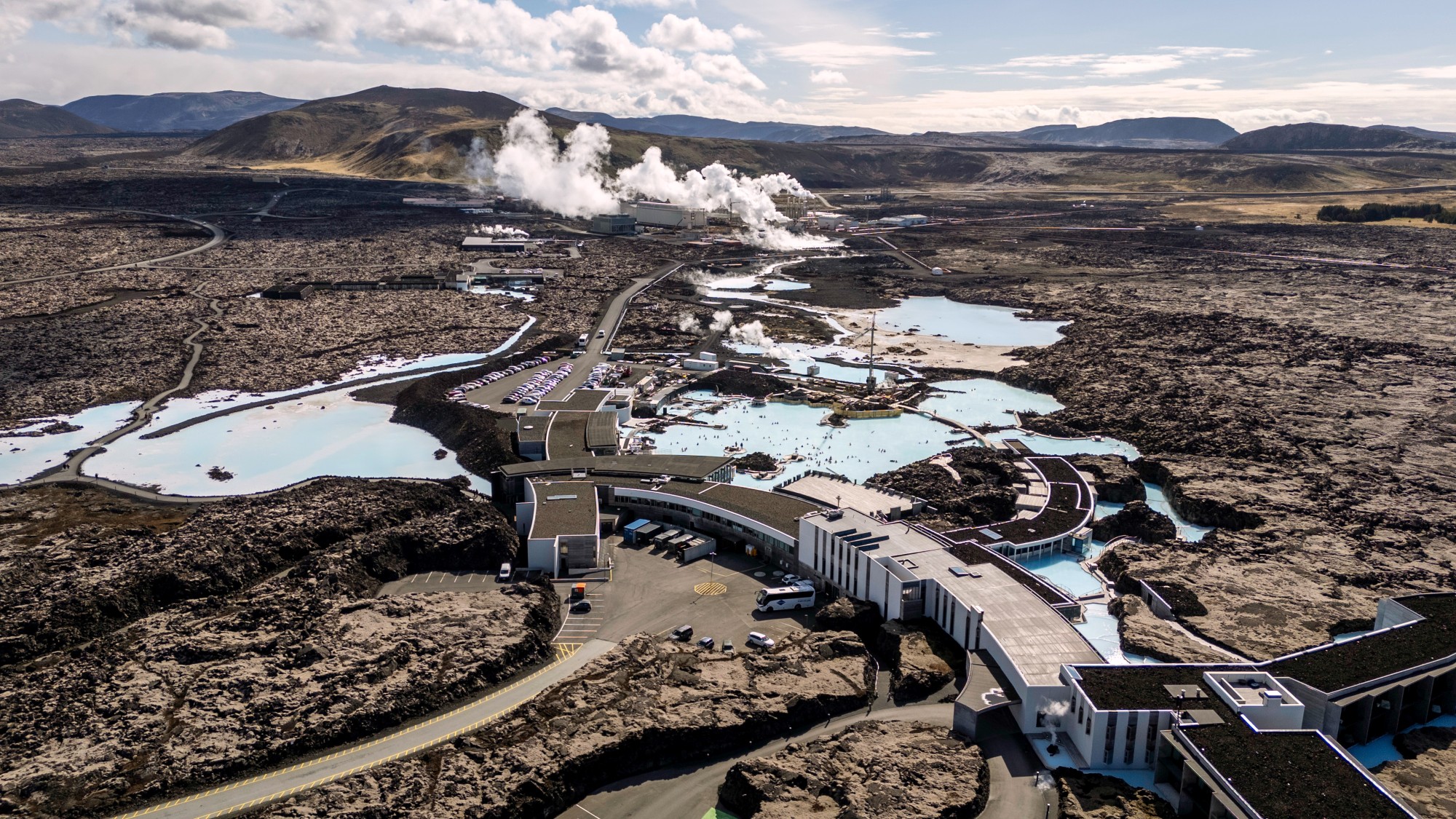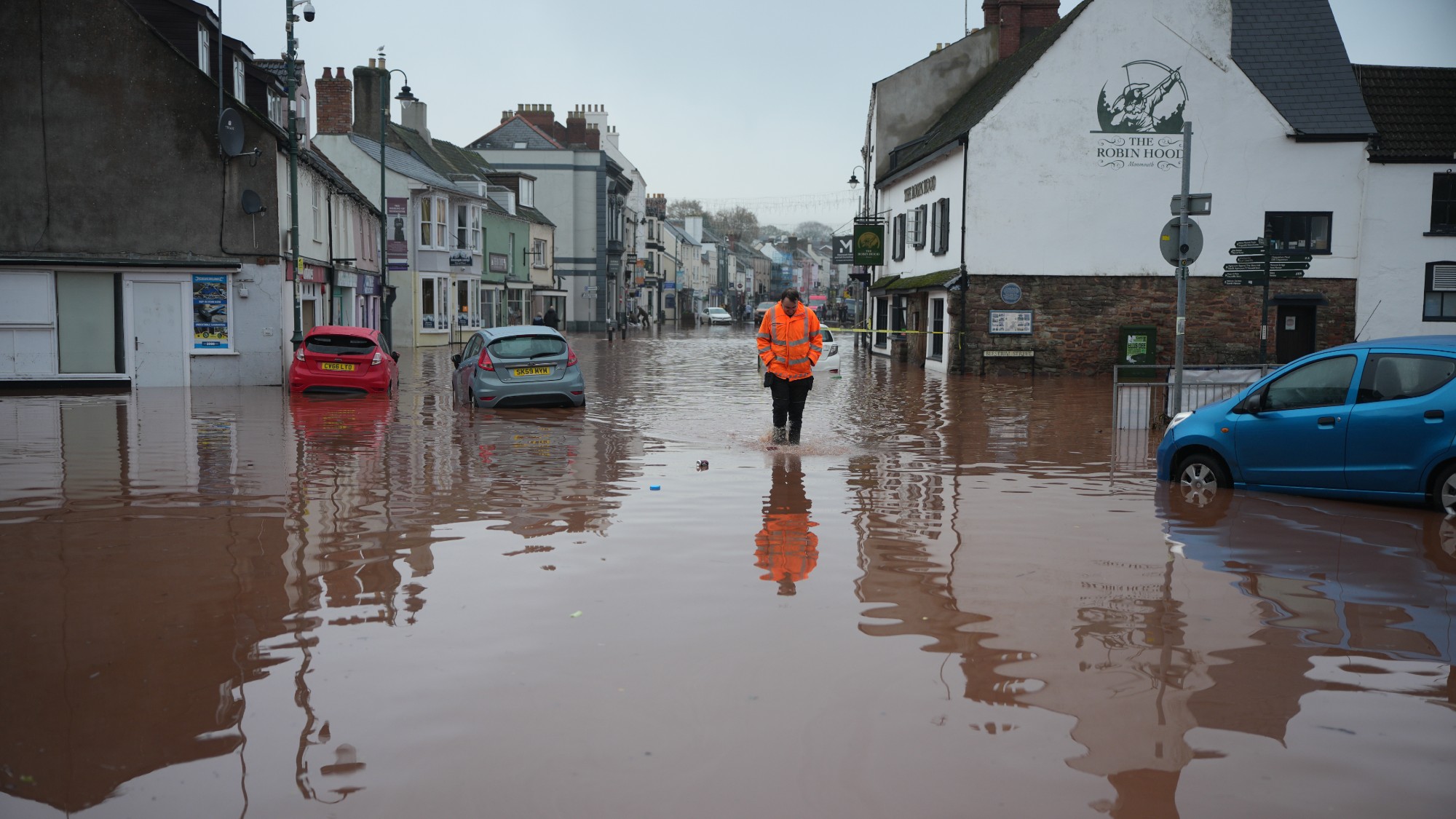Sherbro: Idris Elba's plans for a futuristic eco-city
British actor wants to transform Sierra Leonean island into economic and environmental powerhouse, but issues of feasibility and funding remain

A free daily email with the biggest news stories of the day – and the best features from TheWeek.com
You are now subscribed
Your newsletter sign-up was successful
Hollywood actor Idris Elba is attempting to turn an island off the coast of Sierra Leone into a futuristic, eco-friendly "smart city".
The London-born star, whose father was from the West African nation, has teamed up with a childhood friend to develop Sherbro – an island "roughly the size of the Isle of Man", said The Guardian. The Sierra Leonean government has granted Sherbro "enough autonomy" to allow the project to go ahead.
Elba hopes to use the project to bring wind-powered renewable energy to Sierra Leone for the first time. Sherbro Island, "once under British reign, is now my canvas for change", he said in a post on X.
The Week
Escape your echo chamber. Get the facts behind the news, plus analysis from multiple perspectives.

Sign up for The Week's Free Newsletters
From our morning news briefing to a weekly Good News Newsletter, get the best of The Week delivered directly to your inbox.
From our morning news briefing to a weekly Good News Newsletter, get the best of The Week delivered directly to your inbox.
How did the project come about?
In 2016, Elba's childhood friend Siaka Stevens – the grandson of the late Sierra Leonean president Siaka Probyn Stevens – saw a map of power generation for Sierra Leone. Sherbro Island was the only region not highlighted, which Stevens found curious, according to the project's website.
After "extensive research", Stevens "recognised the island's potential for transformation", and convinced Elba of the positive impact that this could have on the rest of the country.
"Originally we went there thinking how could we bring tourism to the most incredible 19 miles of beachfront," the 51-year-old actor told the BBC.
But "a more innovative plan came into play", said the broadcaster.
A free daily email with the biggest news stories of the day – and the best features from TheWeek.com
After Elba's father died, he had "vowed to use his platform to make a genuine and long-term contribution" to Sierra Leone, said the project website. He wanted to "shift the narrative around West Africa to a positive and forward-looking vision for Africans".
In 2018, Elba and Stevens founded Sherbro Alliance Partners (SAP). The following year, they agreed a deal with the Sierra Leonean government, and several major firms, to turn Sherbro into an eco-city in a development fuelled by clean energy sources.
SAP agreed with renewal energy group Octopus to build Sierra Leone's first wind farm on the island. This will "benefit all Sierra Leoneans, irrespective of their tribal or political affiliations", SAP said in a statement.
What are the issues with the project?
Sherbro, which is about two hours from the mainland by ferry, lacks mains electricity. About 30,000 people live there, according to the most recent population data from 2013, and most work in the fishing and rice farming industries.
The reality of their life is "far removed" from the mocked-up plans of what the eco-city could look like, said the Daily Mail. With glass buildings and business and entertainment complexes, the city is a world away from the "run-down shanty towns" that most of the island's inhabitants currently call home.
The island is also a delicate ecosystem, "covered with mangrove forests" and an "important nesting site for sea turtles". Elba told the BBC that "it's a beautiful, green part of the world and we don't want to disturb that".
British energy supplier Octopus has outlined plans to turn Sherbro into an "energy island", with battery stations for electric vehicles. But only about 28% of the mainland's population have access to electricity, according to the Daily Mail.
Sierra Leone's President Julius Maada Bio, who is from the Bonthe district that includes Sherbro, said the development would make the island "an economic engine for our country and neighbours". But Elba and Stevens stress that the process is "likely to last decades", said The Guardian. Feasibility is a "key question", while SAP needs to raise "billions of dollars" from various sources.
US-Senegalese singer Akon announced a plan to build a futuristic city in Senegal more than five years ago – a £4.7 billion metropolis inspired by fictional African nation Wakanda. The first phase was due to be completed by the end of 2023, but the project has been hit by"delays and controversy". Only a youth centre and the shell of what will be the "welcome centre" has been built.
Sierra Leone, a former British colony that became independent in 1961, is "one of the poorest countries in the world, so investment isn't rushing through the door", Elba told CNN.
"Never in my lifetime would I have thought I could build the foundation for a new smart-city," he told the BBC. "I'm not qualified for that. But I am qualified to dream big."
Harriet Marsden is a senior staff writer and podcast panellist for The Week, covering world news and writing the weekly Global Digest newsletter. Before joining the site in 2023, she was a freelance journalist for seven years, working for The Guardian, The Times and The Independent among others, and regularly appearing on radio shows. In 2021, she was awarded the “journalist-at-large” fellowship by the Local Trust charity, and spent a year travelling independently to some of England’s most deprived areas to write about community activism. She has a master’s in international journalism from City University, and has also worked in Bolivia, Colombia and Spain.
-
 The environmental cost of GLP-1s
The environmental cost of GLP-1sThe explainer Producing the drugs is a dirty process
-
 Nuuk becomes ground zero for Greenland’s diplomatic straits
Nuuk becomes ground zero for Greenland’s diplomatic straitsIN THE SPOTLIGHT A flurry of new consular activity in Nuuk shows how important Greenland has become to Europeans’ anxiety about American imperialism
-
 ‘This is something that happens all too often’
‘This is something that happens all too often’Instant Opinion Opinion, comment and editorials of the day
-
 The environmental cost of GLP-1s
The environmental cost of GLP-1sThe explainer Producing the drugs is a dirty process
-
 The world is entering an ‘era of water bankruptcy’
The world is entering an ‘era of water bankruptcy’The explainer Water might soon be more valuable than gold
-
 Zero-bills homes: how you could pay nothing for your energy
Zero-bills homes: how you could pay nothing for your energyThe Explainer The scheme, introduced by Octopus Energy, uses ‘bill-busting’ and ‘cutting-edge’ technology to remove energy bills altogether
-
 Why scientists want to create self-fertilizing crops
Why scientists want to create self-fertilizing cropsUnder the radar Nutrients without the negatives
-
 Why the Middle East is obsessed with falcons
Why the Middle East is obsessed with falconsUnder the Radar Popularity of the birds of prey has been ‘soaring’ despite doubts over the legality of sourcing and concerns for animal welfare
-
 ‘Jumping genes’: how polar bears are rewiring their DNA to survive the warming Arctic
‘Jumping genes’: how polar bears are rewiring their DNA to survive the warming ArcticUnder the radar The species is adapting to warmer temperatures
-
 Pros and cons of geothermal energy
Pros and cons of geothermal energyPros and Cons Renewable source is environmentally friendly but it is location-specific
-
 How will climate change affect the UK?
How will climate change affect the UK?The Explainer Met Office projections show the UK getting substantially warmer and wetter – with more extreme weather events